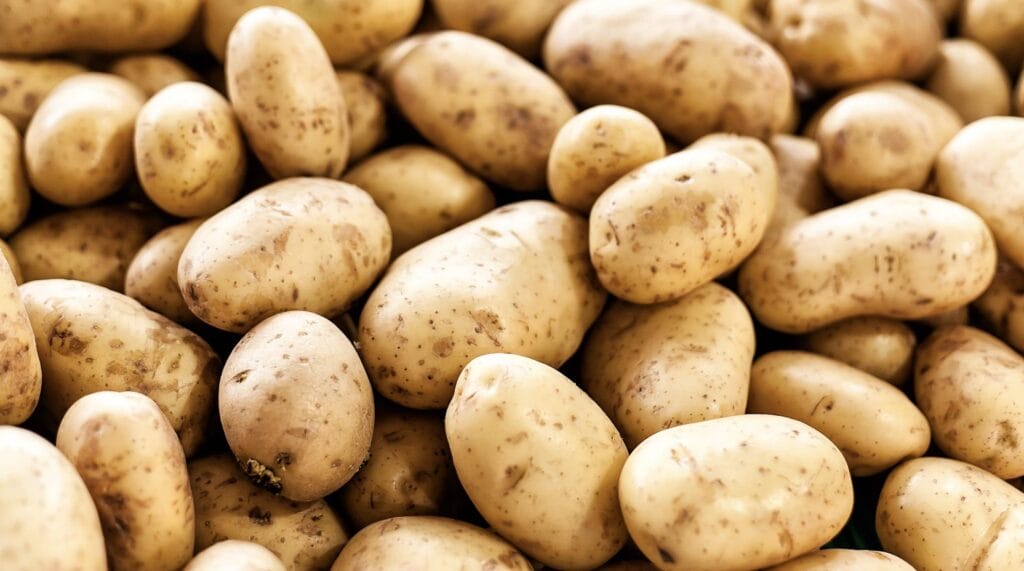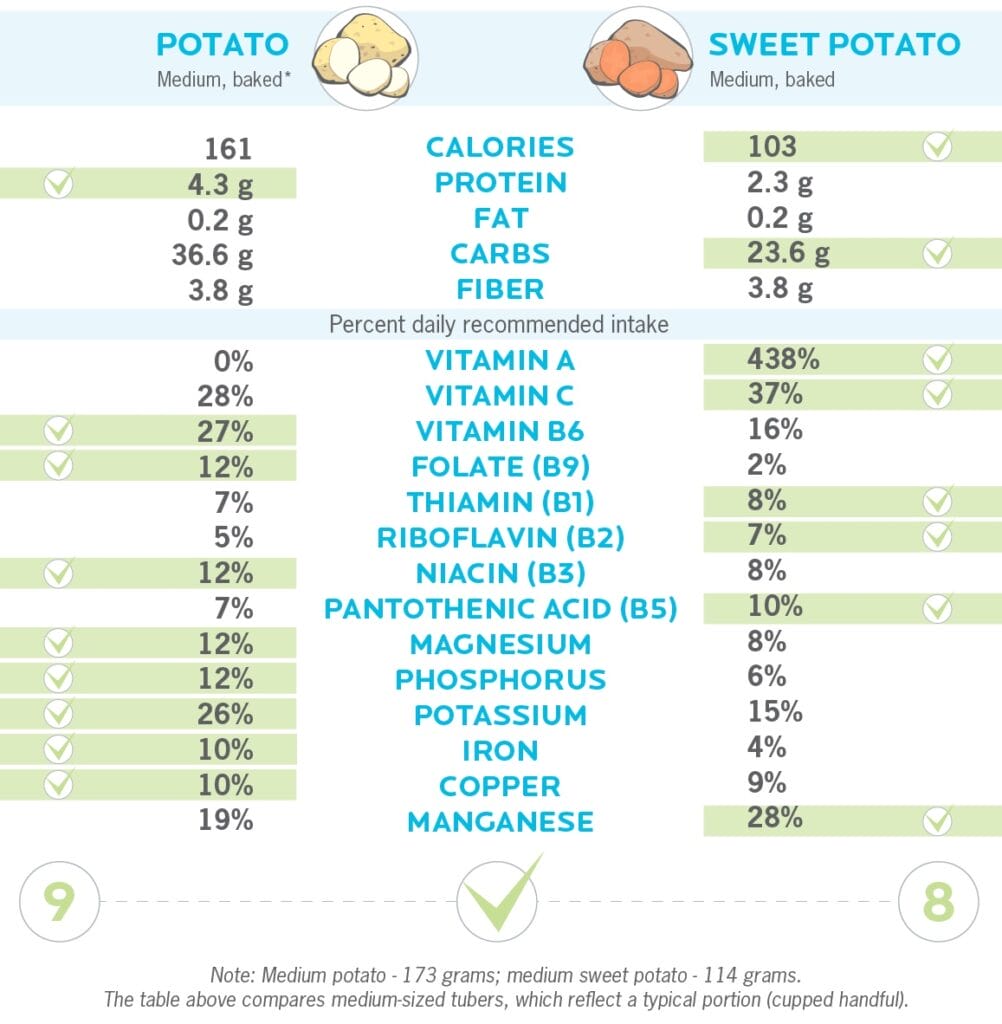White potatoes can get a pretty bad rap, often dubbed as the ‘unhealthy’ potato or seen as treat-food. But what is actually based on – and is it true? Should we be avoiding the white stuff – or is it an out-of-date theory?

The Basics
Sweet and white potatoes are both vegetables, and members of the tuber family. Grown underground, they are essentially swollen stems. They both contain beneficial resistance starch which, like fibre, does not digest in the gut. Instead it is fermented, producing short-chain fatty acids. They may keep you fuller for longer, act as fuel for healthy gut bacteria, and can increase mineral absorption and prevent the absorption of toxins. They’re also thought to decrease inflammation and the risk of colon cancer… the list goes on! So why are potatoes sometimes frowned upon?
It stems back to the outdated (and worryingly dangerous) theory that all carbs are bad. We could argue this topic for hours – but let’s keep it super simple: carbohydrates are not categorically bad for humans, much like fuel is not bad for your car. There are of course some ‘better’ and more suitable sources of carbohydrates depending on the individual and their goals, but even the typical ‘bad’ carbs (such as sweets, for example) have their place in when it comes to fuelling individuals for performance. Think of an ultra-marathon runner: it’s unlikely they’ll be able to keep themselves topped up with enough energy by chewing on some carrot sticks mid-run… so a handful of jelly beans might be just what they need!
So let’s get back to the matter at hand: the battle of the potatoes. Is it just the carbohydrate content that has sparked the debate of which is superior, or is there more to the story?
Show Me The Stats
Time to face the numbers. We’ve included some key stats below based on a typical medium sized potato of each (a big thanks to Precision Nutrition for this info, which they have based on a medium white potato weighing in at 173 grams, and a medium sweet potato weighing in at 114 grams).

Interestingly, and perhaps surprisingly, of these 17 measure, white potatoes come up trumps. Aside from the enormous difference in Vitamin A (where the sweet potatoes winds hands-down!) much fo the nutritional content of the two tubers is relatively similar. Yes the carbohydrate content of the white potato is higher, but we did point out that a medium white potato is typically heavier – so this should come as no surprise. This of course isn’t necessarily a bad thing either – if a white potato is typically more macro-nutrient dense, and fuel or weight gain is your aim, then this ticks a lot of positive boxes. Even for individuals who have weight loss goals, option for the higher calorie and white potato might leave them fuller for longer, and in turn discourage over-eating later in the day.
Glycemic Load
Some research claims that white potatoes are not as good for you, as they have a higher glycemic load than sweet potatoes, suggesting they could provoke a blood sugar and appetite spike. However, the scientific evidence does not support glycemic load strongly affecting appetite, bodyweight, inflammation or blood glucose control: total calorie intake has a much larger impact on these health markers.
Not to mention that your blood sugar’s response to food often far more heavily affected by the time of day, medications you might be taking, the cooking method of your food, your sleep quantity (and quality), genetics, your gut bacteria, the rest of your diet and activity levels. That’s a lot of other contributing factors!
So the point we’re making… switching out one potato for another in the grand scheme of things is going to be a drop in the ocean compared with the other factors that could spike your sugar levels. If your sleep hygiene leaves a lot to be desired, working on this will likely be far ‘lower hanging fruit’ when it comes to regulating those sugar levels.
The Summary
If you’re including vegetables on your plate, be that salad, steamed veg, sweet potatoes or white potatoes, (and certainly if these are being included in place of something heavily processed) then that is 100% a good thing.
The less processed the vegetable, the better – so sadly this does mean that not all potato products are equal! And, unfortunately for the crisp lovers out there, a good old serving of boiled new potatoes are going to do a lot more good than a pack of Walker’s ready salted.
As for sweet VS white potatoes? We’ll leave that up to you. Both have their merits in different ways, so it’s really not an either-or situation. Our advice? Consume as wide a range of vegetables in your diet as you can, because the variety will do wonders for your gut! And you know what they say… variety is the spice of life, so mixing things up will likely keep you happier too, and perhaps even encourage you to experiment with nutritious foods even more. So eat both varieties as part of a balanced and intentional diet, and you’ll be well on your way.
Interested in honing in on your nutrition? Get in touch to find out about our bespoke nutrition coaching options, for both existing SCFIT members and non-members alike.
